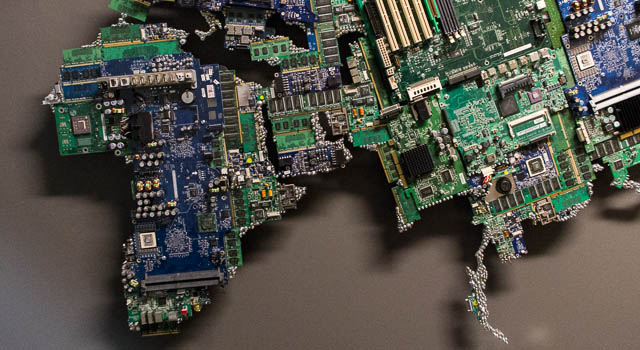
A large proportion of the African populace still does not make use of formal financial services. The main reason for this phenomenon relates to geographic challenges in reaching the unbanked populations located in rural areas. Also, lower-income households still deem formal financial services to be too expensive while regulatory requirements are seen as being overly cumbersome. Below we consider some of the different banking models and financial service transmission mechanisms currently employed by banks to deliver financial services across Africa. Where possible, we highlight the advantages and disadvantages of each model and also consider the potential thereof in bridging the gap between formal financial services and the large SSA unbanked population.
Branch
In a research paper published in 2014, iVeri Payment Technologies (iVeri) notes that, even though banks are employing different methods to attract new clients, branches still fulfil a crucial role in the retail banking landscape. According to the KPMG 2013 Africa Banking Industry Customer Satisfaction Survey, of the people who already utilise banks, 99% of respondents said that they still use branches. While branches allow for a full financial services offering delivered by trained staff in a secure location, they are expensive and most importantly, inaccessible to prospective rural clients.
Mobile
In recent years, mobile technology has made significant progress in overcoming some of the challenges relating to reaching the unbanked. However, it is important to distinguish between mobile money and mobile banking, the former being mostly responsible for the significant growth in mobile payment services being offered in countries such as Kenya and Tanzania.
Mobile money usually offers money transfer and payment services, whereas mobile banking solutions aim to offer a more comprehensive set of financial services usually backed by an account at a formal financial institution. A common example of the latter is the mobile banking apps offered by commercial banks. The disadvantage of mobile money is that it does not offer a full range of financial services; and thus, users are still not fully financially ‘included’ – users will not share in the benefits of financial inclusion, such as being able to apply for credit.
Online Banking
Online banking refers to the scenario where financial services are accessed via the internet, but excludes the access of mobile money or mobile banking services. Internet penetration across SSA is still relatively low. According to the World Bank, for every 100 people, only 16.9 were internet users (including mobile access) in 2013 across the SSA region, much lower than the global average of 38.1. Furthermore, the World Bank estimates that SSA had only 0.3 fixed broadband subscribers (excluding mobile access) for every 100 people in 2013, compared to the global average of 9.6. On account of the low internet penetration (especially fixed broadband) across SSA, online banking probably does not represent a particularly viable option to reach SSA’s large unbanked populations, where the costs associated with computers, modems and fixed lines are probably too high in any case.
ATM
iVeri notes that ATMs have the potential to be a very popular banking channel in SSA. Furthermore, ATMs “often experience high withdrawal rates as the preference for cash is still very high in most of Africa.” Unfortunately, similar to the case for bank branches, the installation of ATMs is expensive. Also, ATMs are most efficient in areas with high population density and are thus not really suited to serve the large unbanked populations which are widely dispersed over large areas.
Mobile Branch
A mobile branch represents a fairly new approach employed by banks across Africa in an attempt to reach prospective clients in rural locations. The approach usually involves a van or truck furnished with banking equipment. This approach saves clients the cost of having to travel to a branch while offering many of the same services offered by the latter. The only disadvantage being that the mobile branch is only accessible on certain days, and the time between ‘access’ days may be longer if destinations are particularly remote. That said, the mobile branch model combined with simple-to-use mobile banking could bridge this gap.
Agency Banking
Agency banking refers to the scenario where a third-party, such as a local supermarket or post office, provides financial services on behalf of a bank. The bank usually provides the third-party or agent with the necessary equipment and technology to provide the financial services. Possible disadvantages of this model include trust issues, lower security and the fact that the staff was not trained by the bank and may thus be less knowledgeable. However, if these obstacles are addressed, agency banking could well be used as an efficient supplement to the mobile banking and/or mobile branch models.
The above is an excerpt from KPMG’s 2015 Sector Report on Banking in Sub-Saharan Africa.
Credit: KPMG Africa Blog









